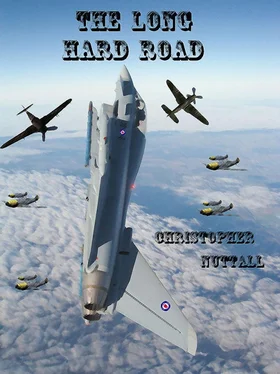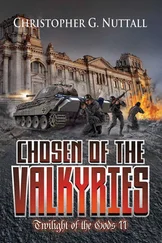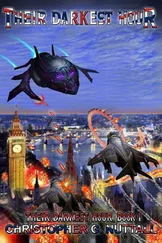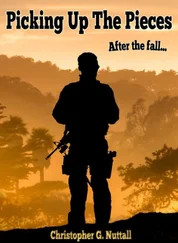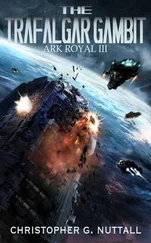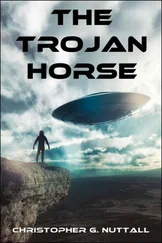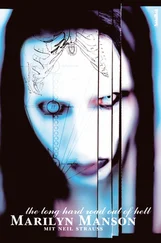Trotsky nodded. “Then its time,” he said. “Send the signal.”
* * *
The NKVD had learned very quickly that they could no longer relay on fear to keep the population in line. The first attacks, directed against individual agents and the Moscow police, had provoked retaliation, and then the second attacks had been even more brutal. The entire terrorist campaign had been incredibly frustrating for Beria, before he died, and the NKVD was on the verge of collapse.
Stalin had ordered them to send more forces to Moscow, knowing that whoever controlled Moscow had a good chance of holding the rest of Russia, and ordered them moved into the barracks outside the city. Marshal Kliment Voroshilov, the commander of the 1 stGuards, had ordered them to patrol the city, even under attack. The NKVD had been under constant attack ever since, and they had even lost a handful of tanks. Recovering one that had been overrun by the underground had been a relief; they had enough problems with Molotov Cocktails without facing tanks as well.
The NKVD driver took the tank back to the barracks, noticing that it needed some repairs, and left it in the tank park. The tank was indeed moving sluggishly; it had been fitted with a concealed FAE bomb. When Trotsky sent the signal, the FAE bomb exploded, sending a massive wave of fire blasting across the NKVD tank farm. When Voroshilov would call for their services, the stunned survivors would be in no shape to help anyone, not even themselves.
* * *
Molotov heard the shouting even as his black car entered Red Square. An obviously scared NKVD officer checked his papers, passing over half of the checks he was supposed to make, just to remain out of sight. He glanced behind him and gasped; nearly the entire population of Moscow was on the streets, shouting slogans that would shock Stalin, who would almost certainly be on the verge of having Voroshilov open fire on the crowds.
“Down with Stalin,” they shouted, a massive chant that echoed around the buildings, cowing the NKVD guards. Firing on Poles was one thing – everyone knew that the Polish people were eternal enemies of the Russian Rodina – but to fire on so many of their own people? They’d been reminded of their own mortality; they knew that nemesis was at hand.
“Down with Stalin… Down with Stalin…”
Molotov moved as fast as he could. The NKVD guards seemed almost pleased to see him; Stalin hadn’t issued any orders at all. “Take me to Marshal Kliment Voroshilov,” he commanded, using the Marshal’s full name to avoid confusion. “At once.”
The guard who was supposed to escort him directly to Stalin didn’t argue. “This way, Comrade,” he said, and led him into a small room in the Kremlin. Marshal Kliment Voroshilov looked up at Molotov as he entered.
“Ah, Molotov,” he said. “You do know that they were throwing your cocktails around earlier?”
Molotov glared at him. “Don’t try to be suave,” he snapped. “It doesn’t suit you.” Voroshilov scowled at him. “What are you going to do?”
Voroshilov picked up a machine pistol. “Do?” He asked. “I’m just calling for reinforcements, and then we’re going to blast that rabble away from the Kremlin.”
“No,” Molotov said. His tone was flat. “Voroshilov, that’s the entire population, more or less, and they’re armed. You start a fight and it will end with us being hung over the statues of Comrade Stalin.” A thought struck him. “Where is Comrade Stalin?”
“He’s gone into the underground tunnels,” Voroshilov said. His tone was full of glee. “He’ll meet up with the 1 stGuards outside the city and…”
Molotov cursed. He’d thought that Stalin would have stood it out until the end. Clearly the dictator had decided that using the link to the Moscow Underground, which had been sealed ever since the unrest had broken out, was safer than staying around to fight. God only knew where he might have gone…
“Why do you care anyway?” Voroshilov asked. Molotov’s hands clutched the assassination weapon that Trotsky had given him. “It is a honour to cover the retreat and regrouping of the great man who…”
“He had all our best generals shot,” Molotov snapped. He brought out the weapon, secure in the knowledge that Voroshilov wouldn’t recognise it for what it was. “He only spared you because you were clearly no threat to anyone…”
“I’m the supreme commander of the 1 stGuards,” Voroshilov snapped. “Comrade Molotov…”
“Oh shut up,” Molotov said, suddenly reaching the end of his tether. The weapon made a single phut noise as it fired a burst of tiny bullets into Voroshilov’s face. For a long chilling moment, Voroshilov’s hands scrabbled for the machine pistol, but then he fell over. Molotov picked up the machine pistol, set it to single-shot, and shot Voroshilov again, just to make certain.
“Sir, I…”
Molotov turned as the guard burst in. “We are going to end this in a way that doesn’t involve us all dying,” he said, and hoped that he was telling the truth. Voroshilov’s command radio was in front of him; he picked it up and issued orders.
“Sir, what’s happening?” The guard asked. He sounded plaintive. “Why are you…?”
“We’re surrendering,” Molotov said flatly. He watched as the NKVD guards laid down their weapons, to have them collected by Irina and Sergi. “We’re going to put an end to all of this.”
* * *
“He’s fled,” Trotsky said grimly. Irina and Sergi had searched the Kremlin from top to bottom once the NKVD guards had surrendered; they had only found the link to the underground. He wished he could say that he had been surprised, but Stalin had always had a question mark hanging over his conduct during the Civil War. That little detail had been forgotten by the Communist historians, who had given Stalin the decisive role in every event from before his own birth right up to the current nuclear program.
Natasha nodded. “Perhaps for the best,” she said. “If he’d remained here, he might have managed to put up a fight.”
Trotsky nodded. It was a good point, he supposed; Stalin would have fought like a cornered rat. “So… what happened at Radio Moscow?”
“We got the transmitters intact,” Natasha said. “You can make your recording now.”
Trotsky nodded again, feeling his years pressing down on him. He was old; older than even Natasha appeared. He’d been supposed to have died three years ago; that had been a shock, even to him.
“Have the recorder brought in now,” he said, and waited until Irina brought in the recorder. She had played a vital role in inciting the population to come out onto the streets, making another bid for justice and fairness, and had led them to the Kremlin. She smiled at him and he smiled back. If he’d been a few years younger, he might have tried to…
He shook his head. Like Natasha, Irina was more than she seemed. The bubbly student was so… unreal, even for the strangest university in Moscow, and he was certain that Irina had skills that no one else ever knew about – until it was too late.
“There,” Irina said. “You may speak when ready.”
Trotsky took a breath. Stalin had rarely spoken to the entire country; Lenin had only done it once, as far as Trotsky recalled. Radio had been in its infancy during the Revolution – the first Revolution – and it had been Stalin’s regime that had spread thousands of bulky radios around, just to ensure that everyone got their daily dose of propaganda. Who knew; if the people didn’t hear the soothing lies of Radio Moscow, they might start believing the dreadful rumours?
He spoke in careful basic Russian. “People of Russia,” he said. “My name is Leon Trotsky.” He allowed a note of humour to slip into his voice. “I imagine that you will have heard of me.”
Читать дальше
